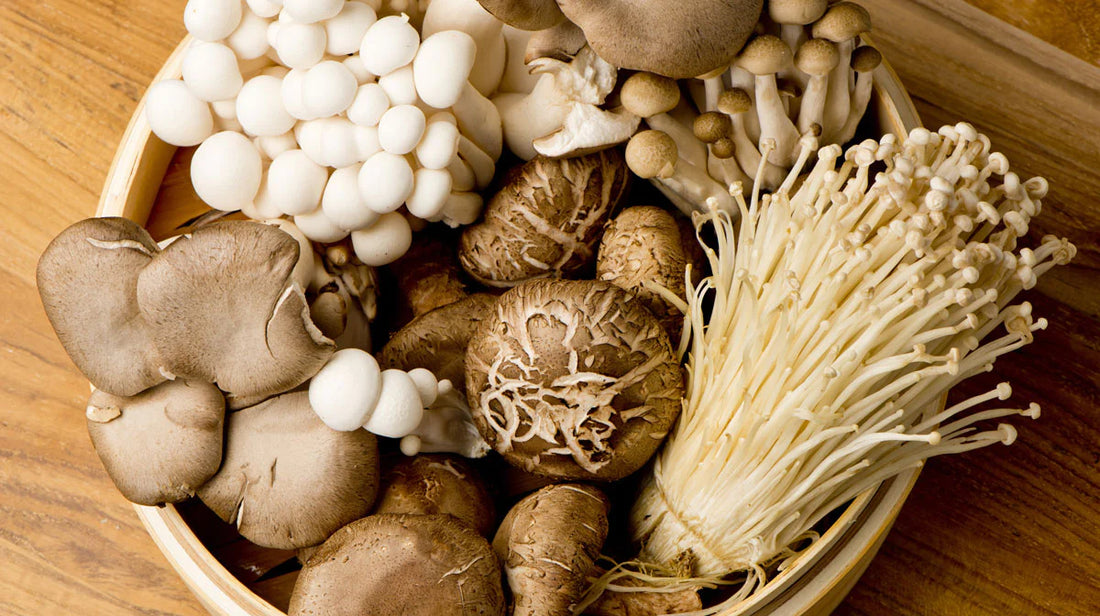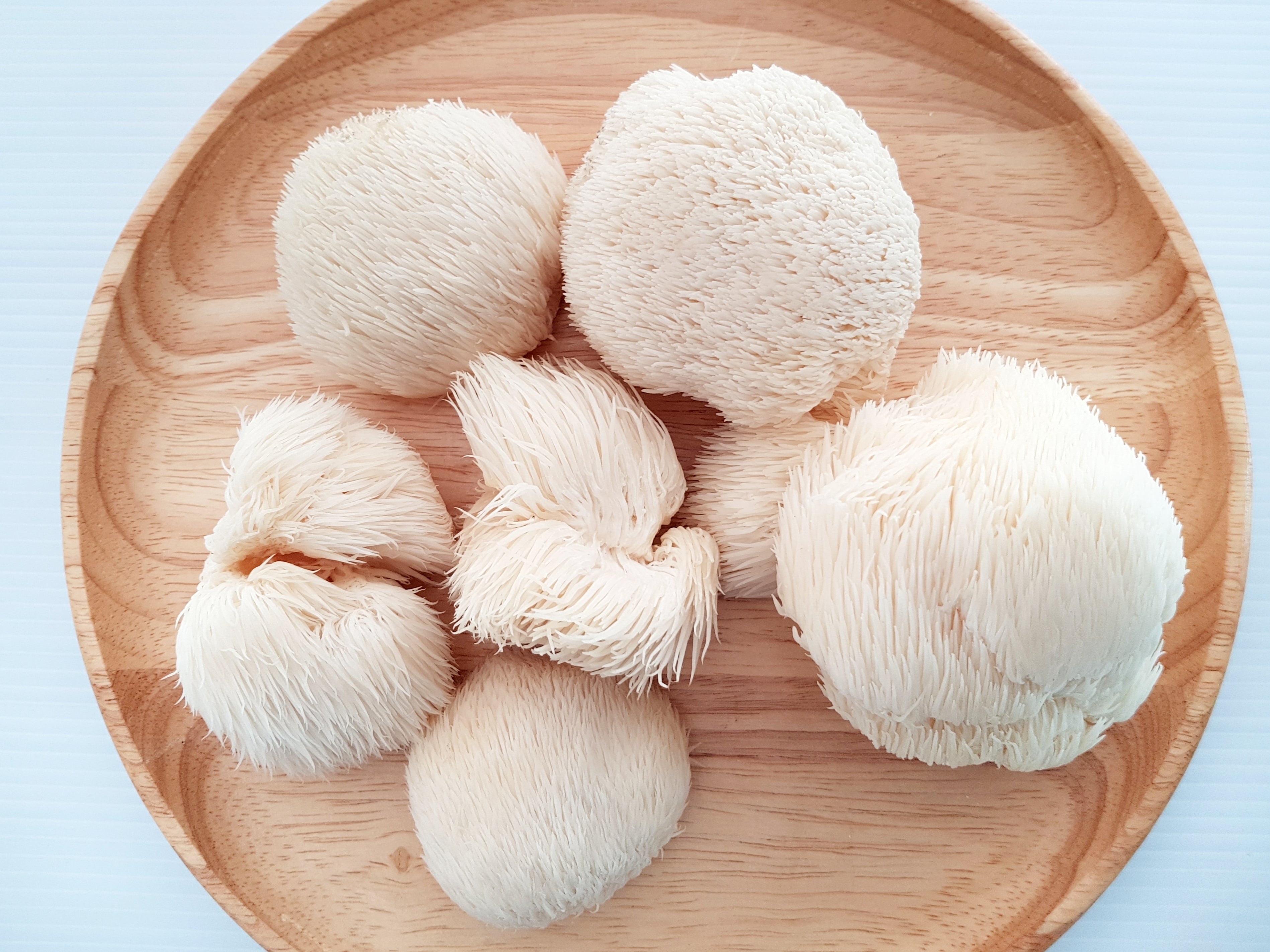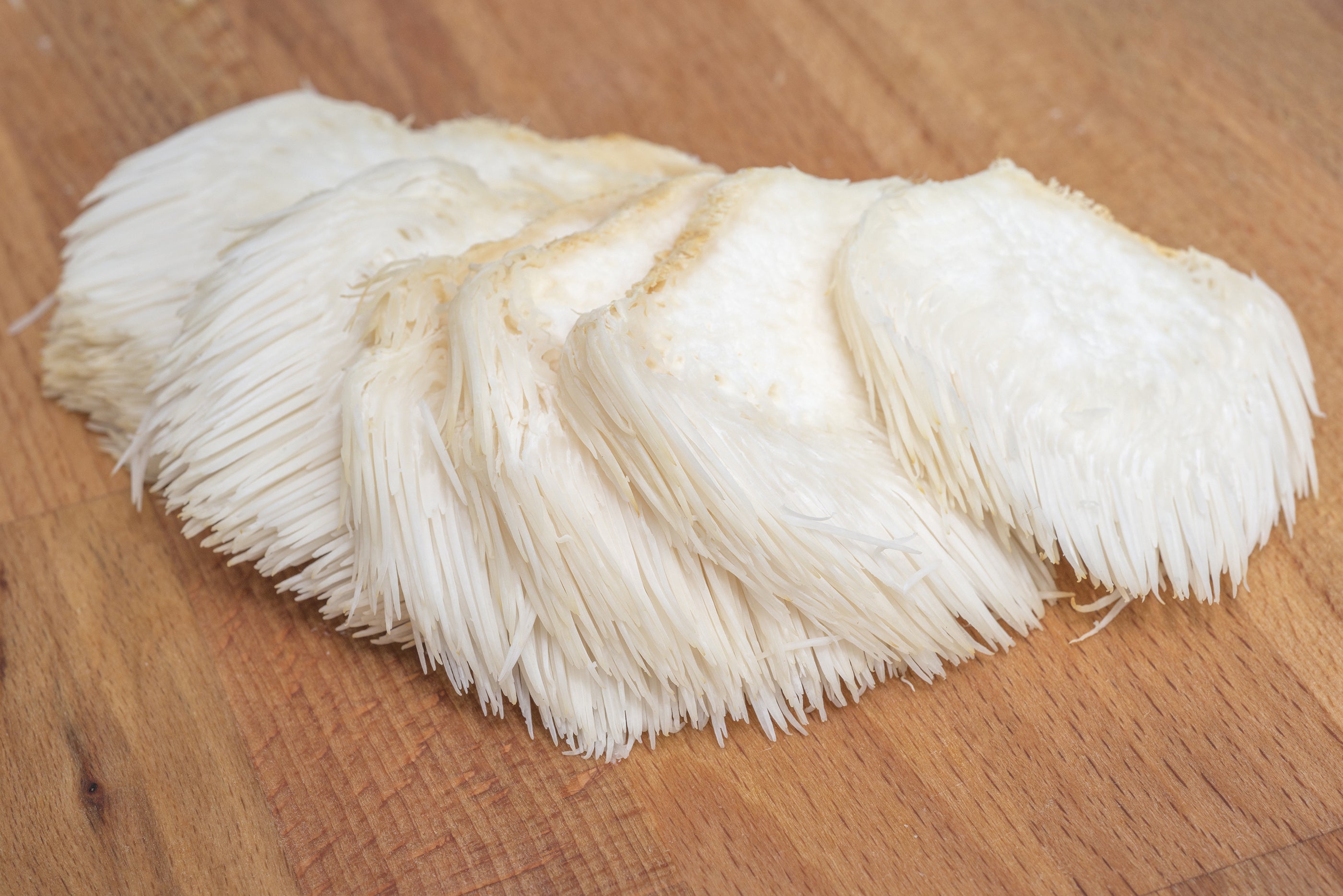How High-Protein Mushrooms are Changing the Game for Plant-Based Diets

Calling all plant-powered peeps!
Plant-based lifestyles are exploding, but let's be honest, protein intake can be a tricky beast to conquer. While tofu, tempeh, and lentil stews are amazing, sometimes you crave something more satisfying, something with a real umami punch... and edible mushrooms contain not only protein but 9 essential amino acids as well.
Enter the game-changers of the plant-based world: high-protein mushrooms! Did you know that some varieties like Oyster mushrooms boast 3-4 grams of protein per 100g fresh, tripling the amount found in spinach and almost doubling that of broccoli? That's a plant-powered punch that can truly satisfy your needs! That's right, we're talking about mushroom proteins that can fuel your fitness goals and tantalize your taste buds, all while being kind to your body and the planet.
Ready to ditch the protein powder and dive into the fascinating world of these mighty mushrooms? Let's explore how protein from different mushroom species can transform your plant-based journey and overall wellness!
Protein: Why Our Bodies Love It So
Imagine your body as a construction site, constantly building and repairing tissues. The bricks and mortar for this intricate project? Proteins! These essential molecules come in various shapes and sizes, each playing a crucial role in diverse functions:
- Muscle growth and repair: After a workout, protein helps rebuild torn muscle fibers, making you stronger.
- Enzyme production: These biological catalysts power countless chemical reactions essential for life.
- Hormone regulation: Proteins like insulin and glucagon help manage your blood sugar and metabolism.
- Immune system function: Antibodies, made of protein, fight off infections and keep you healthy.
So, where do we get these vital building blocks on a plant-based diet? While familiar options like beans, lentils, and tofu offer around 7-8g of protein per 100g, they can be high in carbs and require longer cooking times. Enter the exciting world of high-protein mushrooms, where versatility meets nutritional punch!
So how much protein are we talking about?
Let's put things in perspective and discover protein-rich foods:
- Beans & Lentils: These champions provide the foundation, boasting 7-8g of protein per 100g, but come with higher carb content and longer cooking times.
- Tofu & Tempeh: Soy-based options deliver around 8g of protein per 100g, but taste and potential allergies might limit their appeal.
High-Protein Mushroom Showdown: Comparing Champions
When it comes to adding a protein punch to your plant-based diet, not all mushrooms are created equal. While many offer valuable nutrients, some varieties pack a much bigger protein punch than others. Let's compare your four contenders:
Oyster Mushrooms
These champions reign supreme in the readily available category, easily found in most grocery stores at affordable prices. But affordability isn't their only perk! They boast a whopping 3-4g of protein per 100g fresh, putting them on par with broccoli and making them a protein powerhouse you can easily incorporate into everyday meals. Their mild flavor and meaty texture make them incredibly versatile, perfect for stir-fries, soups, stews, or even grilled as "meaty" fajita strips.
Lion's Mane
While not quite as readily available as Oyster mushrooms, Lion's Mane is gaining popularity due to its cognitive support. It doesn't disappoint in the protein department either, offering a solid 3-4g per 100g fresh. Its unique, slightly sweet and crab-like flavor shines in stir-fries, soups, or even simply sauteed with garlic and herbs.

Shiitake Mushrooms
These flavorful fungi are a mainstay in many kitchens, and for good reason! They offer a delightful umami depth that elevates countless dishes. While their protein content is slightly lower than the top contenders, they still pack a respectable 2-3g per 100g fresh. Enjoy their rich flavor in stir-fries, noodle dishes, broths, or even as meaty burger patties.
Maitake Mushrooms
Also known as Hen-of-the-woods, Maitake mushrooms offer a delightful, woodsy aroma and a slightly chewy texture. While not as common as Oyster or Shiitake, they are increasingly available in specialty stores and farmer's markets. Packing around 3g of protein per 100g fresh, they make a delicious addition to soups, stews, or even roasted whole for a satisfying side dish.
Portobello Mushrooms
While beloved for their large size and meaty texture, Portobello mushrooms fall behind in the protein race. They offer a decent 2-2.5g per 100g fresh, but their protein content doesn't quite match the champions listed above. However, their size and texture make them excellent meat substitutes in burgers, tacos, or even "steaks." Combine them with higher-protein mushrooms for an extra nutritional boost.
Enoki Mushrooms
These delicate, needle-like mushrooms are a fun addition to soups, salads, and stir-fries. However, when it comes to protein content, they fall on the lower end of the spectrum, offering around 1-2g per 100g fresh. While not a protein powerhouse, they still offer valuable nutrients like B vitamins and fiber.

Remember: When comparing protein content, keep in mind that serving sizes differ. While Oyster mushrooms might have slightly less protein per serving due to their smaller size, their higher protein concentration per gram makes them a great choice. Ultimately, the best choice depends on your personal preferences, available ingredients, and desired dish. Experiment and find your favorite fungi friends!
Bonus Tip: Dried mushrooms tend to have a more concentrated protein content due to the removal of water. However, keep in mind that serving sizes also shrink during drying, so adjust your calculations accordingly.
Beyond the Numbers: The Power of Essential Amino Acids:
Remember, protein quality matters, not just protein content. While gram for gram, they might not compete with meat, mushrooms possess a hidden advantage: a more complete amino acid profile. Our bodies can't make all amino acids, so we rely on getting them from food. Essential amino acids are crucial for numerous functions, and some plant-based protein sources lack them. However, Lion's Mane mushrooms contain all nine essential amino acids, making them a valuable addition to a diverse plant-based diet filled with mushroom protein goodness!
More than Muscle Fuel: A Nutritional Bounty
Mushrooms are nature's multivitamins! Beyond protein, they offer a treasure trove of nutrients:
- Vitamins: Vitamin D for bone health, B vitamins for energy production, and Vitamin C for immunity.
- Minerals: Potassium for nerve function, phosphorus for strong bones, and magnesium for muscle relaxation.
- Fiber: Essential for gut health and digestion.
So, mushrooms aren't just about protein—they're nature's multi-talented stage act!
FAQ
Q: Do dried functional mushrooms like lion's mane and shitake mushrooms contain the same amount of protein as fresh mushrooms?

Dried functional mushrooms do contain protein, and in some cases, it's more concentrated than in fresh mushrooms. This concentration happens because the drying process removes water weight, leaving behind a higher proportion of nutrients, including protein.
However, it's important to remember that serving sizes also change when using dried. While the protein content per gram of dried mushrooms might be higher, you'll typically consume a smaller amount of dried mushrooms compared to fresh.
Here's a breakdown to clarify:
Protein content:
- Oyster mushrooms: Fresh - 3-4g per 100g, Dried - 8-12g per 100g
- Lion's Mane: Fresh - 3-4g per 100g, Dried - 7-10g per 100g
- Shiitake mushrooms: Fresh - 2-3g per 100g, Dried - 5-7g per 100g
Serving sizes:
- 100g fresh mushrooms typically rehydrate to around 30-40g dried mushrooms
- So, while 100g dried mushrooms might have double the protein content (say, 10g), you'll likely only consume 30-40g, resulting in 3-4g of protein, similar to fresh.
Therefore:
- Dried functional mushrooms offer a concentrated source of protein per gram, but serving sizes are smaller due to rehydration.
- The overall protein intake from dried mushrooms might be similar to fresh, depending on how much you rehydrate and consume.
- Always compare protein content per serving size, not just per 100g, for accurate comparisons.
Q: What is mycoprotein, and can it be a meaty option for plant-based eaters?
While not a true mushroom, mycoprotein is a protein-rich food source derived from filamentous fungi like Fusaria venenata. Unlike the functional mushrooms we offer, mycoprotein is cultivated in a controlled environment and then fermented to produce a meaty texture and taste.
Here's the key difference:
High-protein mushrooms: Naturally grown and offer a protein source and essential amino acids within a complete fungal package of nutrients.
Mycoprotein: A concentrated protein source derived from the fermentation of specific fungal strands.
Can it be a meaty alternative?
For some, yes! The texture and taste of mycoprotein can resemble ground meat, making it a potential replacement in various cuisines. It's often used in burgers, sausages, meatballs, and crumbles, offering a satisfying option for plant-based eaters.
However, it's important to note:
Mycoprotein is not a perfect 1:1 replacement for meat. Its nutrient profile differs, and some might find its taste slightly different. It's a highly refined product, not a whole food like the functional mushrooms we offer.
At Mushroom Revival, we focus on offering high-quality functional mushrooms as a natural and delicious way to rev-up your plant-based diet. While mycoprotein has its place, we believe in the holistic benefits of whole mushrooms and their potential to nourish your body and mind in a truly natural way.
Conclusion
So, there you have it! The exciting world of high-protein mushrooms awaits, offering a delicious and nutritious way to elevate your plant-based journey. Remember, they're not just protein powerhouses; they're multi-talented fungi packed with vitamins, amino acids, minerals, and fiber.
Embrace their versatility, explore their culinary potential, and discover how these fascinating organisms can fuel your body and tantalize your taste buds. Let your kitchen become a playground for experimentation, and don't be afraid to get creative! With a little exploration, you'll find that incorporating high-protein mushrooms into your diet is a recipe for success, both for your health and your taste buds.
What are you waiting for? Dive into the delightful world of these mighty mushrooms and unlock a new level of plant-based power! Check out Mushroom Revival's wide variety of organic functional mushrooms today.


























